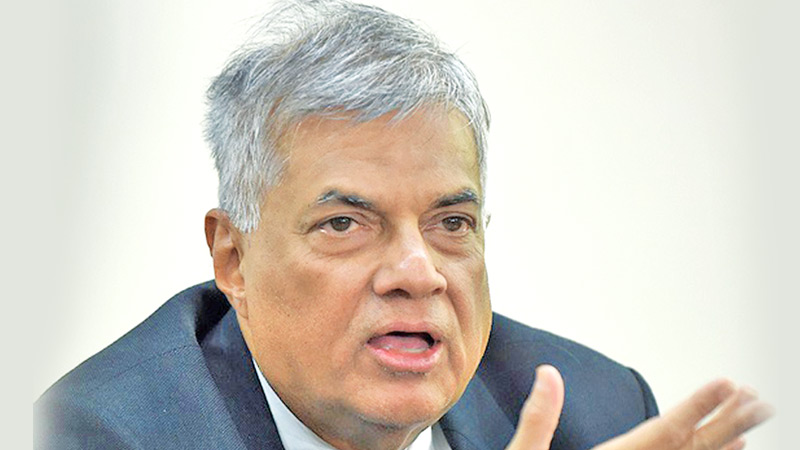United National Party leader Ranil Wickremesinghe said that the country will not have money to pay pensions by 2035. He made this comment during a meeting held via Zoom yesterday (30) with social media activists.
“Our economy collapsed prior to the advent of the COVID pandemic,” Wickremesinghe said. “That was subsequent to changing the programmes we had engaged in by November of 2019.”
He said that other countries are only facing a crisis that occurred due to the COVID pandemic. “But we have both the crisis that was created due to COVID and one that we ourselves have created. Foreign exchange reserves in other countries have not been depleted. We are below even Nepal. I proposed that we should obtain money from the IMF. They said that expenditure has to be controlled.The IMF did not try to influence us. Jobs cannot be granted without vacancies.The IMF only made a few amendments to the programme we submitted in 2015. Other countries have decided that money should be obtained from the IMF. The IMF is not strict due to the pandemic situation. If another country is asked even, the IMF certification is required. We cannot do this work similar to how they gulped the COVID concoction made here.
“The government will have no money by 2035 to pay pensions. Today there is no foreign exchange for the country. No local income. There was no such situation previously. According to the programme we commenced in 2015, we reduced the budget deficit and after forty years we created a primary budget surplus. If that programme had been continued with and taken forward the present situation would not have occurred. The debt for this year, as a percentage of the Gross National Product is 108 percent. When we handed over it was 88.6. With the objective of not allowing our debt to exceed 85 percent of GNP and maintaining the budget deficit at 5 percent we brought in, in 2003, the State Financial Management Act. After 2015, we maintained it at that value. When we left after handing over the government there was a dollar reserve of seven and a half billion dollars. In addition, there were two and half billion in dollar reserves.Today there is only two billion dollars in the dollar reserve. What we did was to restructure the economy and reduce the burden of debt. It is not a problem to increase the rate of growth of the economy. The main problem is the debt burden. If the work we had done had been taken forward, we could have moved forward faster. Not only did we increase salaries but we improved the environment required for investors. As a result, there were requests for three LNG power plants from Japan, India and China. Japan was also prepared to invest in the Eastern Terminal and Light Railway Transit System. India was going to invest in the oil tanks in Trincomalee. The MCC investment had come forward. We were to receive investments for the Hambantota Investment Zone as well. All of this was broken up,” he said.



Add new comment